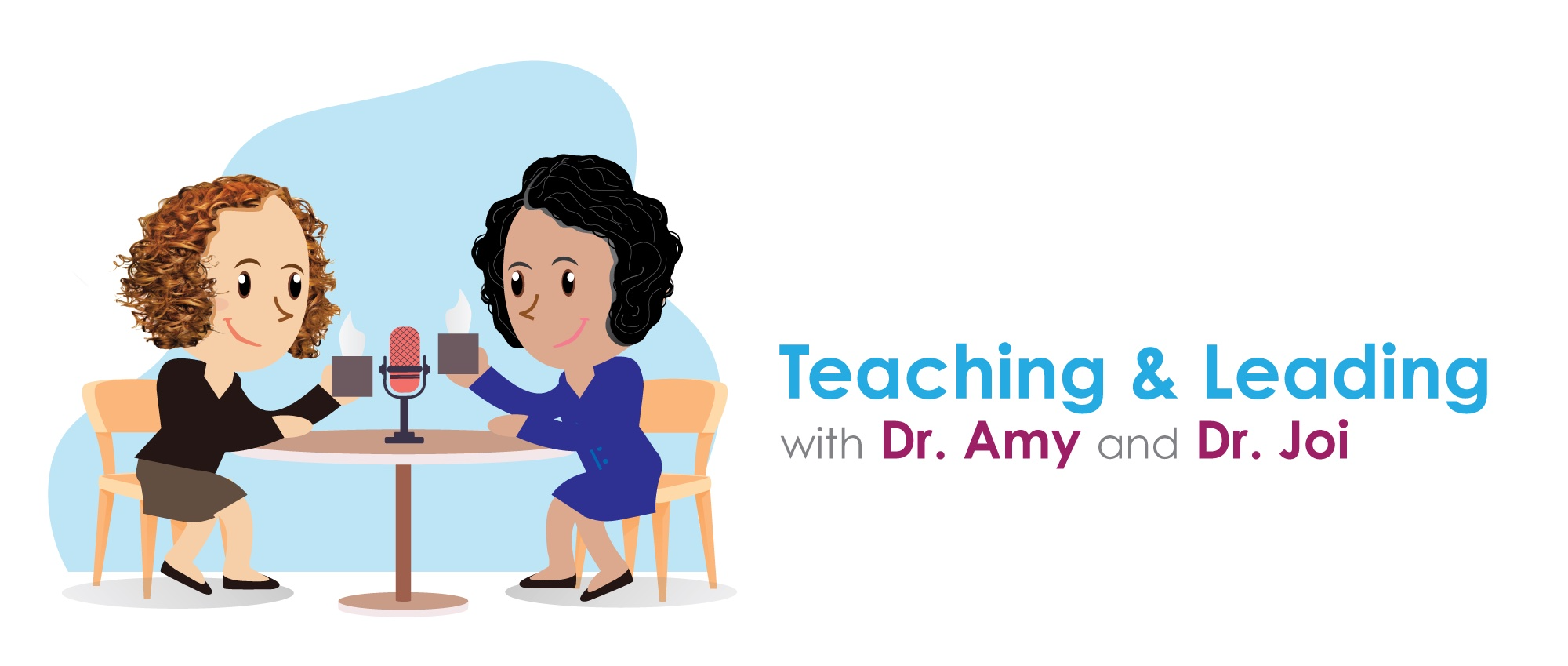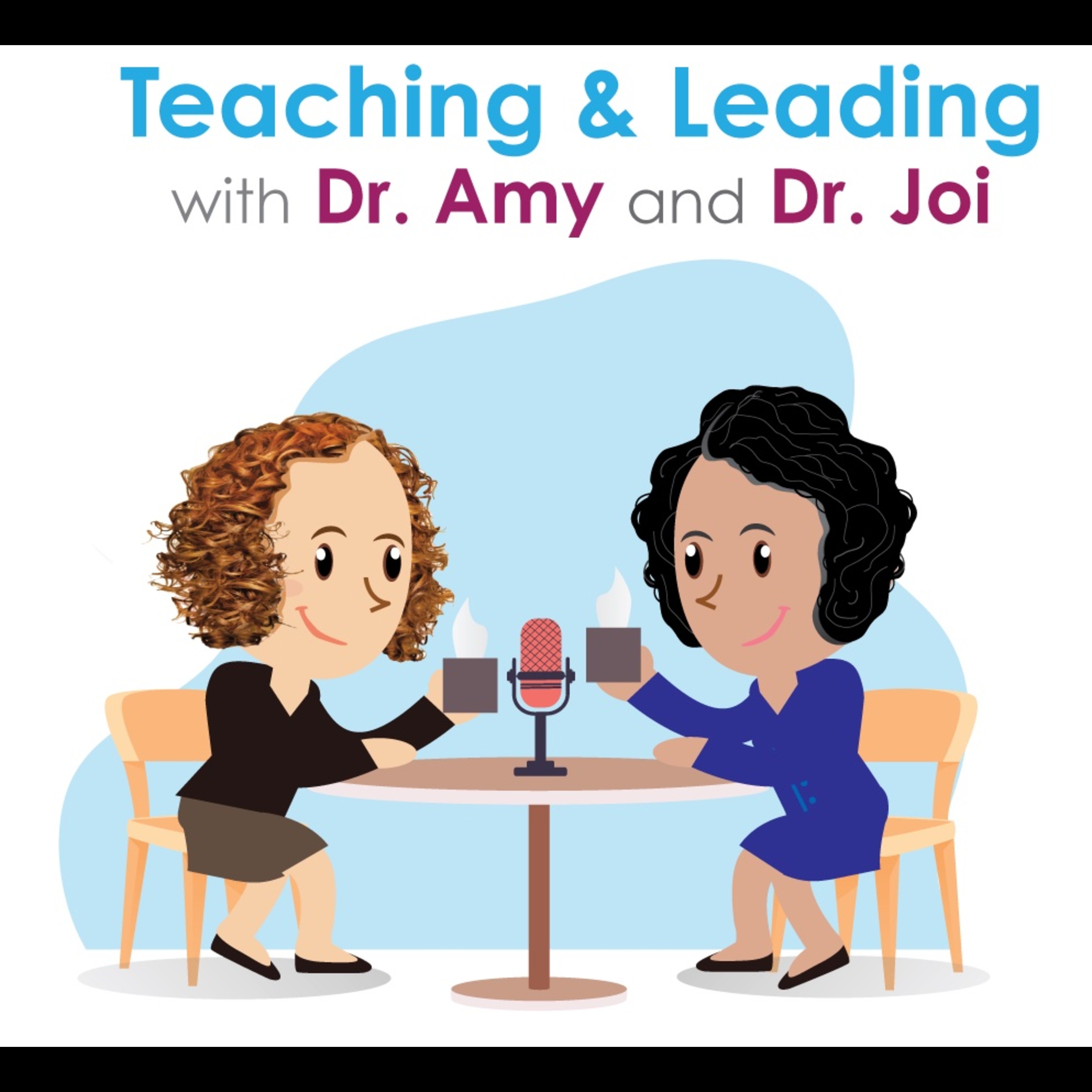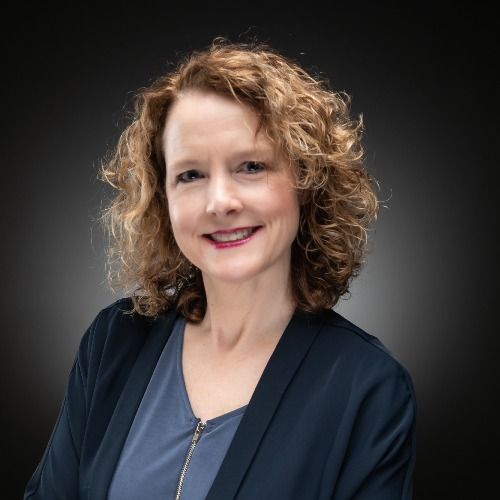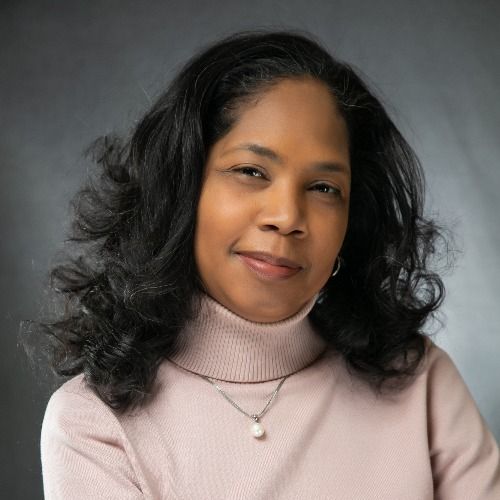Reboot: Examining Teacher Retention with Dr. Amy and Dr. Joi - Part 2
In this episode, Dr. Amy and Dr. Joi talk about teacher retention. After discussing the causes of teachers leaving the profession in Part 1, we look at what we can do to keep them, especially experienced teachers. We discuss the necessary sense of belonging in a school culture and how educators need to feel they matter as part of the school and as individuals. We also share our personal experiences with being developed professionally and the importance of being empowered with leadership and voice.
Transcript
SUMMARY KEYWORDS
teachers, belonging, school, talk, opportunities, districts, people, important, retention, teaching, classroom, diversity, engagement, conferences, valued, connection, talents, silos, professional
SPEAKERS
Joi Patterson, Amy Vujaklija
Amy Vujaklija:To hear other teachers talk about what they were doing in their own classrooms. That sense of development was really important to me. I really valued that. This episode was originally released under the podcast titled teaching and learning theory versus practice. This rebooted episode has been migrated to teaching and leading with Dr. Amy and Dr. Joi. I am Dr. Amy Vujaklija, Director of educator preparation. And
Joi Patterson:I am Dr. Joi Patterson chief diversity officer. Our podcast addresses issues through the lens of diversity, equity and inclusion, along with solutions for us to grow as educators.
Amy Vujaklija:So join us on our journey to become better teachers and leaders. So let's get into it. Good morning, Dr. Joi.
Joi Patterson:Good morning, Dr. Amy, how are you today?
Amy Vujaklija:I am feeling much more energized and really excited about taking our first conversation about teacher retention from the despair to a more positive note on how we can tackle this problem.
Joi Patterson:Right. Our first conversation was really doom and gloom, I have to admit, and we focused on why teacher retention is so critical. We know that our K 12 enrollment is steadily increasing, and it's more diverse. And at the same time, our teaching population is decreasing and is decreasing for a number of reasons, right? We talked about the teacher shortage. Because of baby boomers, we're at a time where the baby boomers are retiring. That's a large percentage of the teaching population that we need to recruit so that we'd have to replace them, then we have the issue of teacher retention, and attracting teachers. So we talked about the challenges we have with attracting teachers to the profession. And many of them see the pay or the pressure or the policies, and it deters them from wanting to teach. And then we have the problem with retention, something that we can do something about. And that's why teacher retention is so critical. We talked
Amy Vujaklija:about those pressures and policies and why people leave the profession so much sooner than we are anticipating they should we plan in the pipeline for replacing people who retire. But when there's a huge surge of people leaving the profession far earlier than that retirement age, that really puts the pressure on schools of education to get more people into the classroom. But with so few people who are really experienced teachers, we also struggle with the shortage of mentors. So we have to do something about retention. We need experienced teachers in the classroom in our schools, so that when we're preparing teachers, they have mentors, they have guides, they have people who can welcome them into the school culture. Let's talk about that for us.
Joi Patterson:So how can districts approach improving retention? Let me share this little information with you about how districts can develop a sense of belonging in current and prospective employees. So that's really important. According to Harvard, Center of Talent Innovation, high belonging mattering identification, and social connection is linked to 56% increase in job performance and a 50% decrease in turnover risk. So belonging is an extremely important factor in teacher retention.
Amy Vujaklija:I would argue that the number is higher. I think that that social connection and the decrease in the silos of being in your own classroom, your own content area, would increase that cultural connectivity that we have at our schools. What is it that districts are doing to welcome in a new teacher and to make sure that teacher feels a sense of belonging that they matter, that they can identify with the school and have that social connection? But I want to flip that around to teachers need to be seeking out jobs in schools where they find a connection should be part of the interview process. says is how am I feel connected in this school? But say we have our first second year teacher? What can school districts do to increase that sense of mattering and social connection? You
Joi Patterson:know? So there's a couple of things that schools can do. So when we're talking about belonging, it's hard to talk about belonging without talking about diversity. And when I talk about diversity, I'm speaking very, very broadly, not just people that look like me, but we're also talking about subcultures. Do you respect me? Do you respect my culture? Do you include me? Is there a mentor for me. So there are some key things that you can do to say that I appreciate you, I see you, I value you. And those things help with belonging. So I see you, I want to include you, I want to value your culture. I was talking to a friend of mine the other day, and she works at a predominantly Latino school. And this is February. So she was having this conversation about Black History Month, and saying that the school does not do anything to value black history. And so she was put off by that. And so she felt isolated. And it occurred over and over again, to the point where she feels she doesn't belong. They don't value me as an African American experience teacher, because they're not even putting in the same effort. They would for other cultures, and therefore I don't belong, diversity. And subcultures are very important when it comes to belonging. At a minimum,
Amy Vujaklija:I really appreciate that example of that cultural belonging. Sometimes it's awareness, if districts and schools and the administration has an awareness of the cultural needs within the school, and the different diversity of their staff, and faculty and teachers and students, then there's a better sense of preparedness for addressing those needs. What about identification? I wonder if people feel comfortable self identifying their cultures? Is it a place of, for instance, in the example you shared, this teacher is self identifying as African American and part of a culture that she wants to celebrate, along with most schools that are celebrating Black History Month? What about other ways that teachers might self identify their culture? Are they comfortable in doing so? Are they comfortable in saying that they belong to a particular religion, that they are involved in different activities? Or are they silenced in some way? So I think that not only mattering, but also being comfortable identifying who you are as an individual.
Joi Patterson:That makes me think of two things, number one, leadership, and number two development. So when we talk about is there a space even for identification? I think that comes to leadership. And leadership has to set the tone of creating that space of giving people opportunity, I need to be able to see, I need to be able to see not you say that you value me. I can see that by that example that I gave that now we have black history events, there could be other diversities of subcultures. When you see promotion, who's getting promotions, who's been able to provide professional development, who's able to take leadership positions and school based on their culture, and sub culture. So those are the things that I'm looking at. Leadership has a lot to do with that strong leadership, valuing other people, giving other people a voice, and opportunities. I want to be comfortable.
Amy Vujaklija:And I'm sure other teachers would like to be comfortable to share the kinds of activities they're involved in, when they come to school on Monday, our students do and we need to embrace those identities. But let's talk about social connection as well. Mm hmm. We have people who bring a lot of things to the table, that are we embracing that social connection as well as that professional knowledge and expertise. There is a huge risk of teaching in a silo. And I'm sure a lot of people have heard that especially a heist goal or post secondary situation in which you are just teaching your content area. But we can't isolate ourselves. That social connection is so important that I think we saw a lot of problems. When we went to remote teaching and learning, it really highlighted how much we needed a social connection, we are getting on our zoom or our other meetings with a click, but we don't have that interaction, the side conversations before the meeting starts, we're not talking about this great idea we have for an activity, we have our meeting, or we have our class, and then we end the meeting or the class,
Joi Patterson:right. So engagement is extremely important. We know that with our K 12 students, right? We even know that with our higher ed students, in order to keep them motivated to make them feel belong, we have to do engagement, we put them in groups, right? We put them in diverse groups where they have the opportunity to work together, we see them in diverse groups, where they have a chance to connect with each other. So we create circumstances by which they can engage with each other and get to know each other. And that's powerful, because you get away from that ignorance where I don't know you. And that's what's scary to now I know you I know you as a person. And I accept all of you that engagement is really important. But when we're teaching, like you said, sometimes we get into these silos, I know I did, starting off as a teacher. As a matter of fact, I had a Do Not Disturb sign on my door when I started teaching, because I didn't like the drama. I didn't like the politics, I was all about the kids. But you get into these silos where it's just you in your classroom, and you're not engaging, and you're not part of the community of the school. And that hurts retention. Because if I'm not a part of the community of the school, it's easy for me to walk away, right? Because there's no investment there. Leadership again, needs to create these opportunities by which educators can engage with each other. And they can do that through interdisciplinary studies. One other way, and you talked about this before, Amy is development, professional development. So talk more about how teachers themselves can be leaders and professional development.
Amy Vujaklija:I was just looking at the Education elements chart, it shares information on stages of teacher engagement by what phase they are in a school district employment. So first, we attract them. Of course, they don't have a sense of belonging yet, because they're just being drawn into the school. But wow, the sense of belonging is intense and very high during recruitment. It drops to its all time low during that Immersion stage of onboarding and getting things set up. And here's your classroom and here's what you teach. But you're right, it starts to increase during that development stage, it starts to grow because we are seeing this individual, we are honoring opportunities that this individual wants to have to grow and develop in their teaching practices. Part of those opportunities can include workshops and conferences. I always thought it was just the best opportunity and I was so enriched by experiences at National Council of Teachers of English annual conference, or any engagement with the National Writing Project or the different sites such as the Illinois writing project or local writing project, in which teachers joined together to teach teachers we develop together we explored course materials, professional text, looked at new and developing strategies for technology for classroom practices for writing practices. And it was so energizing to hear other teachers talk about what they were doing in their own classrooms. That sense of development was really important to me, I really valued that. And I appreciated the district for sending me to different conferences, or investing in those opportunities, forming hiring a sub for my class, paying for the registration for the conference, or allowing me to have some time in the classroom to practice some of those strategies that I learned that allowed me to feel more connected to my district and school to my administration because they trusted me.
Joi Patterson:Right. So they set aside some money for you to develop. And it showed that you were valued. Research suggests that two of the top factors related to teachers decision to remain in a given school include school leadership support, which we just talked about, and the opportunities for professional collaboration, that engagement. Amy, you know, when we talk about engagement and giving opportunities, opportunities, like you were given where you felt valued, because someone invested in you to develop resource suggests that two of the top factors related to a teacher's decision to remain in a given school include school leadership, support, and opportunities for professional collaboration. This is a big part of belonging. And not only the fact that you receive development, but have you ever had the opportunity after you receive development to share what you learn what your colleagues?
Amy Vujaklija:Ooh, now, that's a good question. Not often, I signed up to present at conferences through the local writing project. And now in the Illinois writing project, and at the national project, I after several years of being involved, I was given the opportunity to lead some professional development during the summer at my district. Alright, so let's talk about empowering teachers. I said in the previous podcast, only 36% of teachers believe that American society values the teaching profession, 79% of people who leave their jobs cite lack of appreciation as the top reason for leaving. So let's unpack this a little bit. I think there are a lot of development opportunities, we're encouraged to seek out conferences and workshops, we have trainings in schools after school, we have professional learning communities, that part seems pretty solid. But what happens when we come back from those conferences, and we are just stoked by all the great strategies and nice ideas that we've learned from other teachers? Well, it falls flat. I've seen time and time again, when districts have teachers in the system who are working on their master's degrees or doctoral degrees, yet, they will hire an outside professional consultant to guide teachers through a professional development workshop. What about mini workshops or sessions with the professionals in your school? Find out who is working on that technology degree? Or who is working on great things in their own professional networks and collaborations? Who is working in a doctoral program? Who is an adjunct working in a community college or university? What are you doing to tap into those talents and bring them to your school in short sessions after school or during professional learning communities? It is hard though, when there is not a strong sense of belonging or community or social network that honors people who are doing this development on their own. Absolutely.
Joi Patterson:And you have to think about even in higher ed, what is it that keeps you what is it that makes you happy, being happy on your job, being happy, what you do is important. And you yourself, I know that you share lots of your talent with the university, and you're constantly doing professional development people seek you out, that is important for teachers, with your family, you have a certain commitment with your family, whether it's your job to do this, and to do that and your kids job, they have different roles and responsibility. You have a commitment to your family. So it's important that in your workplace, where you're spending most of your time that you feel that commitment that they're relying on you because now you're the expert in this field, this person is the expert in that field. And how often do we spend 1000s and 1000s of dollars to find an expert, external expert to bring into the school to share the same information that the teacher could have share because that teacher was also developing that area. So when that happens, there's a lack of appreciation. So these are ways that administrators that leaders can show that they value their teachers by empowering them to share their strengths and their talents and things that they have learned to help develop other teachers.
Amy Vujaklija:And I think there's one more component to that as well. It's providing opportunities for teacher voice in decision making. And I think that leads into discussions about policy at the school level, district level, state and national levels, teacher voice, we've been trained as experts in our fields, as teachers, as curriculum designers, and we should have a voice in what kind of curriculum is used,
Joi Patterson:right, you know, being on Task Force, such as a school improvement plan, things of that nature, it really helps to build a community, I feel that you value me, I'm part of the decision making team. And there should be lots of opportunities. And I think as leaders, we should not overlook certain teachers, right. So it gets back to diversity, making sure that we are including everyone, make sure that I see you, and making sure that I give everyone opportunity to develop and to share their talents.
Amy Vujaklija:I think we're well on our way to creating a retention plan for schools. These are actionable items that schools can do today, they can start looking at their staff looking at their faculty to see where the talents are about calling forth for other types of roles in empowering them and with their voice. So I think we are going to make some headway.
Joi Patterson:Right. So we'll do one more session on this. So we'll talk about some actual strategies for teacher retention. We're also going to look at what do other companies companies that have strong retention, what are they doing to have such an excellent retention rate? What are those things that we can apply to the teaching profession? Amy, I think you and I were on a track to save our profession. We want our teachers to be happy and healthy, and we need them to stay. Well, let's
Amy Vujaklija:do it. It's been great talking to you, Joy.
Joi Patterson:Always great talking to you. And this is such an important topic. I can't think of anything more important right now. Amy?
Amy Vujaklija:Me there. Thank you for listening to teaching and leading with Dr. Amy and Dr. Joy. Visit our website at govst.edu/teaching and leading podcast to see the show notes from this episode.
Joi Patterson:We appreciate Governor State University's work behind the scenes to make publishing possible. Stay tuned for more episodes with Dr. Amy and Dr. Joy





